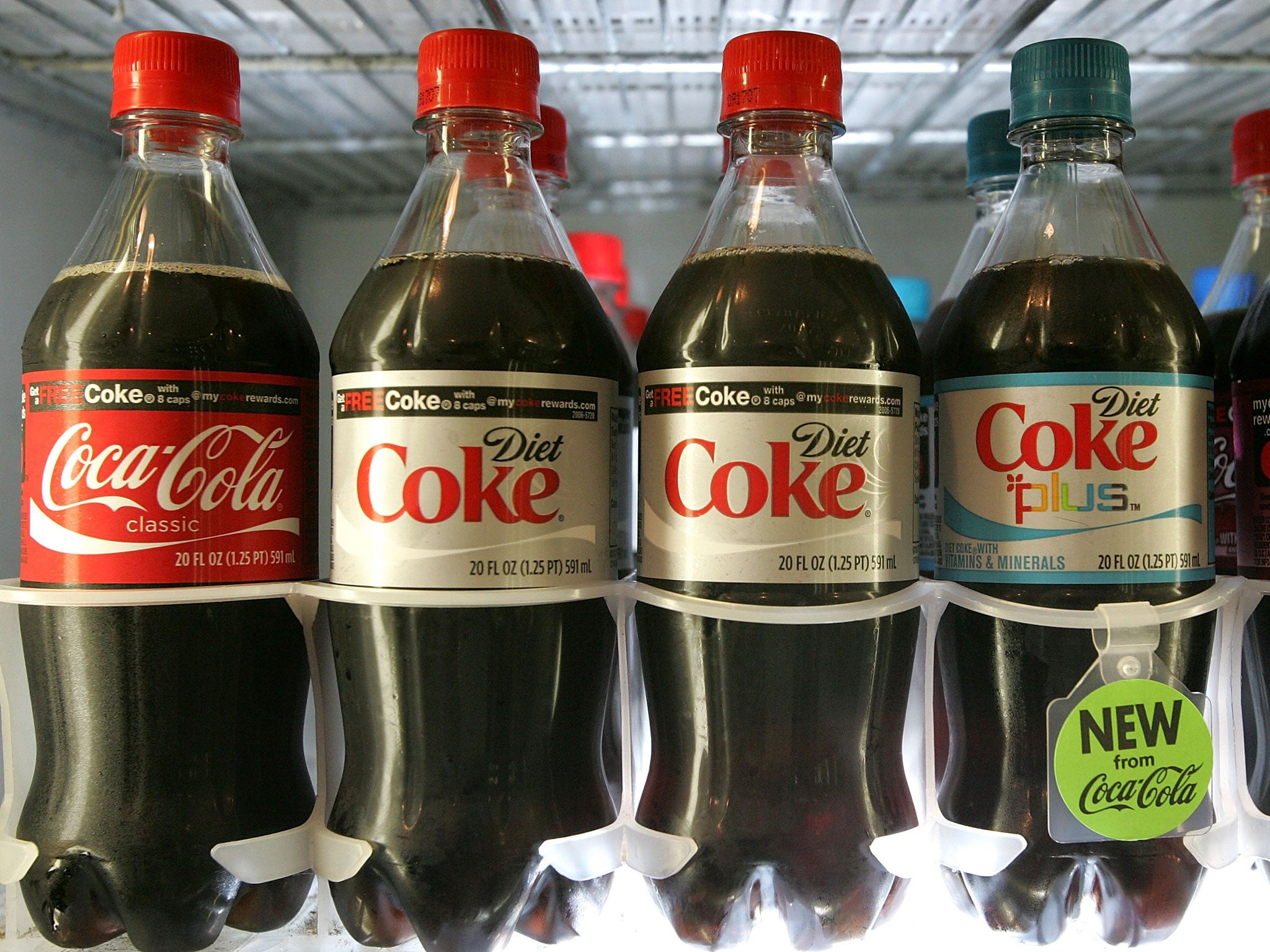It's not Coke's job to make us healthy
Spare me the sainthood for soft drinks. This mind-numbing statement of the obvious and banal is what corporate PRs exist to give us, but that doesn’t make it forgivable

Your support helps us to tell the story
From reproductive rights to climate change to Big Tech, The Independent is on the ground when the story is developing. Whether it's investigating the financials of Elon Musk's pro-Trump PAC or producing our latest documentary, 'The A Word', which shines a light on the American women fighting for reproductive rights, we know how important it is to parse out the facts from the messaging.
At such a critical moment in US history, we need reporters on the ground. Your donation allows us to keep sending journalists to speak to both sides of the story.
The Independent is trusted by Americans across the entire political spectrum. And unlike many other quality news outlets, we choose not to lock Americans out of our reporting and analysis with paywalls. We believe quality journalism should be available to everyone, paid for by those who can afford it.
Your support makes all the difference.In a move hailed by some as exemplary corporate benevolence, the world’s biggest beverage company announced today that it would adopt clearer calorie-count labels, promote healthier drinks and stop marketing to children under 12. “Coke takes anti-obesity campaign global,” the Associated Press reported breathlessly, as if humanity had made a great leap forward.
Everything about this story stinks. Let’s start with the following stupid and aimless sentence from chief executive Muhtar Kent: “There is a place for all of our beverages in a healthy lifestyle.” This mind-numbing statement of the obvious and banal is what corporate PRs exist to give us, but that doesn’t make it forgivable. Nor is Coke’s assumption, in a high-profile announcement, that we haven’t heard this before. It first promised to stop marketing to children in 2007.
Then there is the charade of public service, as if this were motivated by virtue. Coke doesn’t exist to cleanse our livers. It is a massive corporation that exists to make huge profits. This is fine by me, because I like big corporations: they create wealth, tax revenues and jobs. But misleading customers about Coke’s primary intentions doesn’t help that mission. It just misleads customers.
That leads to another dispiriting aspect of this story: some people are actually duped by this crap. A medically astute friend tells me that carbonated drinks are terrible for bone density, so anyone who drinks them to lose weight is doing a double disservice, and storing up osteoporosis. And are there really people who are so naive as to accept dietary advice from a company – Coke, for goodness sake! – that makes fizzy drinks? Apparently so. Next, they’ll be asking their cocaine dealer for tips on nasal hygiene.
Parents, if anyone, should lead by example. And even on that score we should chill out. Coke is responding to one of the great moral panics of our anxious age, over an outbreak of podginess among kids, and the diabetes it might cause. But – and I say this as someone who has been overweight, whatever that means, all my life – like most great moral panics, this is mostly tosh.
There is nothing wrong with being fat. Fatness is not a moral failing. Those who say it is are supporting the dastardly relic of a Christian idea – gluttony. Nor is there any reason that fat kids always become fat adults, as I can prove. And with a bit of historical context, we should recognise that poor children being overweight is a lesser tyranny than poor children starving to death.
That remains the fate of millions around the world. Indeed, if all the effort that middle-class fusspots put into worrying about obesity in the developed world were put into worrying about feeding the world’s starving poor, vast amounts of suffering would be reduced. What is more, we’d have fewer witless pieties from the likes of Mr Kent. So everyone’s a winner.
Join our commenting forum
Join thought-provoking conversations, follow other Independent readers and see their replies
Comments